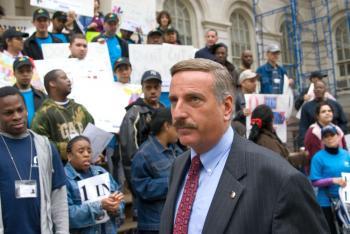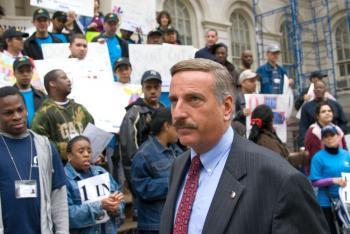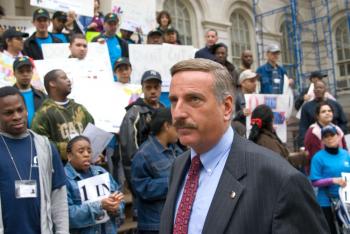NEW YORK—Autistic children have enjoyed sports classes and after school programs across the five boroughs since 2007 thanks to $1.75 million granted by the city council annually. The funding needs to be renewed each year, yet the city’s aching budget has bred concern that the “1 in 150” program will be cut.
On Wednesday close to 100 parents, children, and teachers stood on the steps of City Hall to request that the funding be renewed. They were joined by city council members and more than 75 representatives of various organizations.
Some held pictures of their children, others held banners and signs asking that the funding continue.
“There are a small number of programs we sponsor in the mental health arena that we will fight very hard to maintain and the city council’s 1 in 150 program is one of them,” said Council Member Oliver Koppell, chair of the City Council Committee on Mental Health.
On Wednesday close to 100 parents, children, and teachers stood on the steps of City Hall to request that the funding be renewed. They were joined by city council members and more than 75 representatives of various organizations.
Some held pictures of their children, others held banners and signs asking that the funding continue.
“There are a small number of programs we sponsor in the mental health arena that we will fight very hard to maintain and the city council’s 1 in 150 program is one of them,” said Council Member Oliver Koppell, chair of the City Council Committee on Mental Health.







